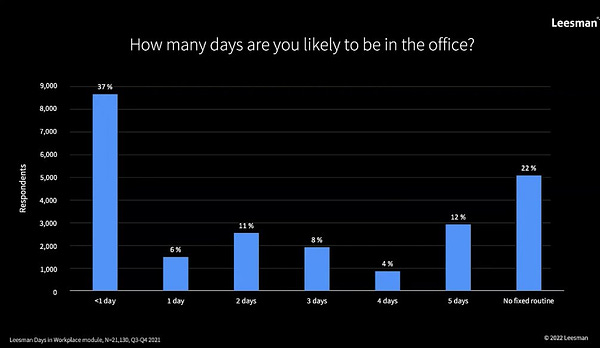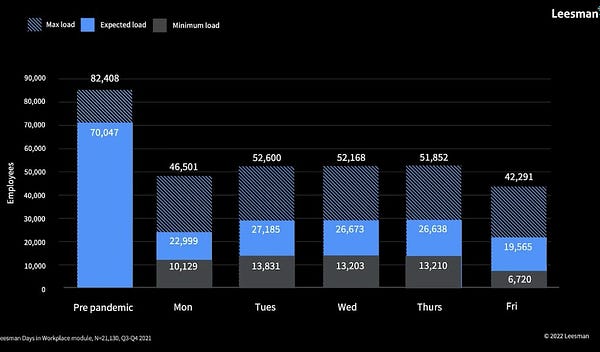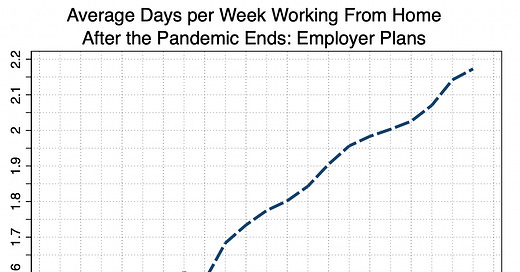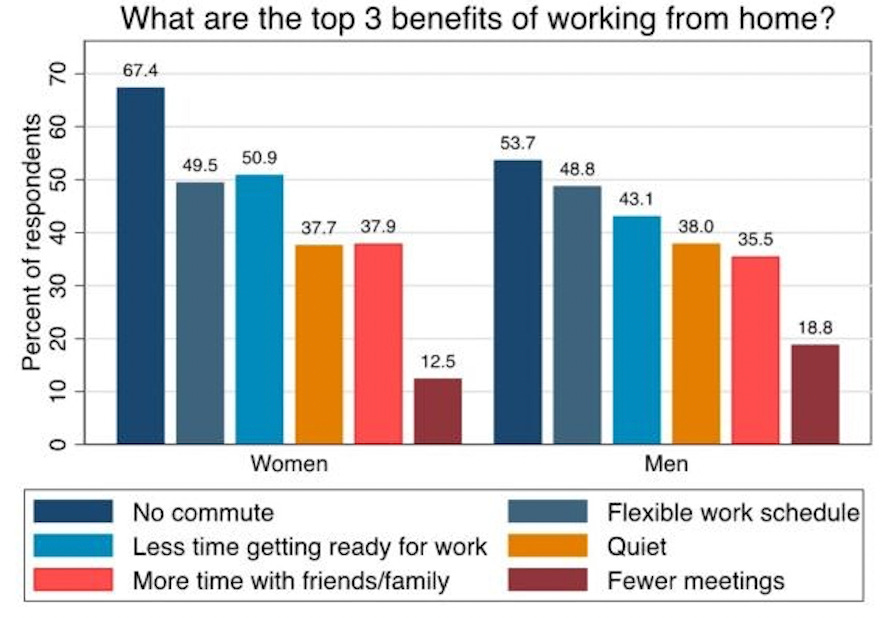The revolution yet to come?
Is the office destined to become a one-day-a-week experience for all of us?
Over the course of the last few years Professor Nick Bloom has been toiling away at his specialised field of study despite this work being met with collective indifference.
He says he tried to organise a conference in 2013 and couldn’t fill a single day with academic contributions. Bloom studies trends in working from home. All of a sudden he’s become the most in-demand researcher in the world.
In the context of the pandemic he has commissioned new waves of his own research, tracking all sorts of data about what flexibility firms are willing to offer to their workers, and what workers themselves are looking for. The latest cut of his data shows some interesting trends. Most notably the employer take on ‘days from home’ line is continuing to trend upwards.
It begs the question where will this line end? And what is driving it? Well, it seems one of the big drivers for it is worker preference.
The main motivation for workers wanting time at home is a simple one - a long commute is an unproductive drain on their lives. 60% of Bloom’s (US-based) respondents said that the commute was the biggest consideration for them - followed by time getting ready for work.
This time saved is seen to be of an especially high value by women (reflecting what we’ve said repeatedly about the burden of domestic responsibilities falling on women).
You’ll be already aware that the UK has some of the longest commute times in Europe. The average daily commute is 57 minutes each way in Britain, this rises to 74 minutes in London. It means that the average Londoner will need to find a spare two and a half hours each day they head to the office. Bloom has created some shareable slides which include the revelation that due to the saving of commuting time, hybrid working should lead to a 5% increase in total productivity.
There’s no doubt that managers definitely prefer workers being in offices. This piece in The Economist heavily cites the favourite arguments about serendipity, office chatter and camaraderie. The article offers an evaluation of the impact of these things:
“By one estimate, spending an average of three days each week in the office can limit encounters between any two workers by 64% compared with pre-pandemic norms. The gap widens to 84% in potential interactions for those in the office two days a week”.
Combining that defence of being together with an extrapolation of Bloom’s data it suggests that a settle down position is more likely to be one or two days a week than three or four. Indeed this was precisely the finding of a new wave of research by Leesman that the organisation was promoting last week.




Podcast listeners will know that this trend is very consistent with what Caleb Parker said on Eat Sleep Work Repeat two weeks ago. Parker made reference to how Salesforce are now reframing their office as their offsite location (very adjacent to how Dropbox said the office is for ‘experiences’). This piece about their wellness retreat slightly reduced my interest in Salesforce’ approach. Anyone who listens to the Blindboy podcast will know that he frequently mentions how tech firms seek to infantilise their workers (‘here’s food for you’, ‘is life complicated, shall we do your laundry?’, ‘here you go have a beanbag and a fussball table to de-stress you’). Part of me thinks the description of the venue near Santa Cruz sounds dangerously like yoga babble, but even my ice-cold heart can see it would be a lovely place to spend a week (if your boss wasn’t there). Regardless, the idea of the office as the offsite hub still sounds smart to me.
Another good read by Antony Slumbers about how the purpose of the office has changed: ‘prescribing the number of days everyone has to be in the office is, frankly, unfit for purpose’. He makes the critical point that the most talented in the workforce are embracing faster change - failing to recognise that could leave firms in a talent vacuum
Slack tried a companywide asynchronous week across the whole organisation (async is work untethered from time, meetings become documents so you can get tasks done when it suits you). 72% of employees (who participated) said it made them more productive and 70% reported it made them less stressed. Two more async weeks are planned for this year
Another enjoyable @FredAsquith TikTok
A few weeks ago I covered research by the Future Foundation. In that study it was found that 20% of white workers were excited about the return to the office. 3% of black workers felt the same. The New Yorker Radio Hour does a fantastic exploration of why office culture isn’t always welcoming to minorities. (Aside, I was on a call this week where I heard a young female worker’s testimony that she didn’t want to return to the office because of the constant sexual harassment that the office represented)
A reader asks for other people’s views of how to build team cohesion








